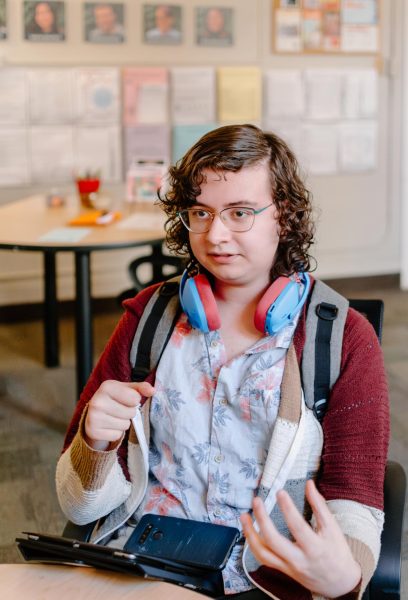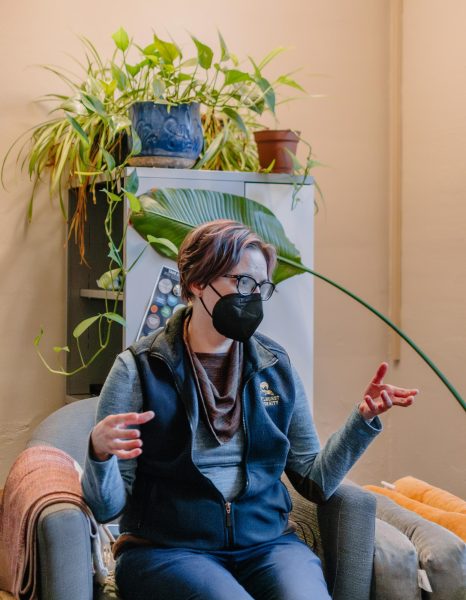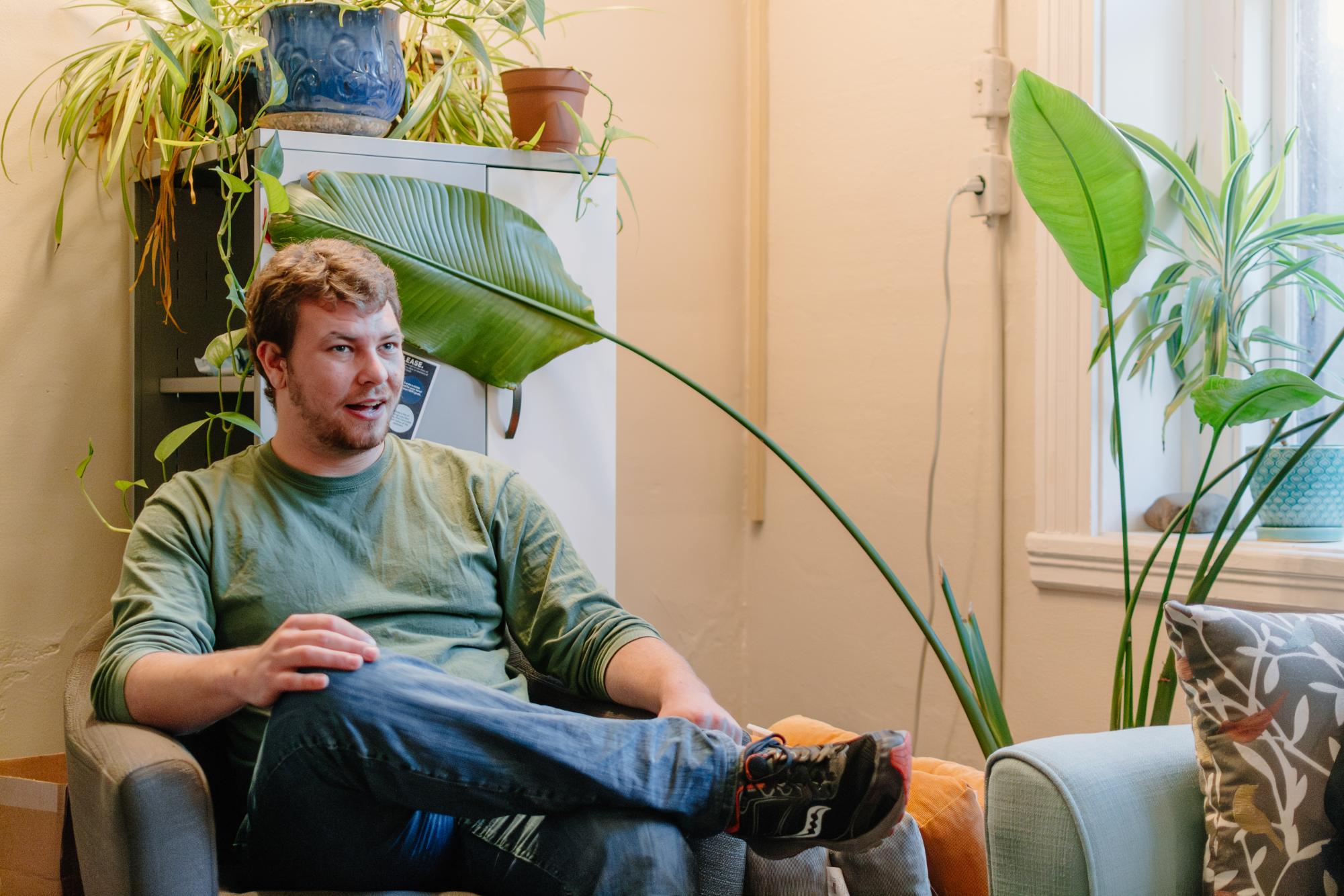Azerie Castro Morera, a first-year mechanical and manufacturing engineering major, is someone who is diagnosed with ADHD, making school difficult for her.
However, Castro Morera believes that she has improved her ability to complete schoolwork since going to Oregon State University’s Academic Success Center.
Located on the first floor of Waldo Hall, the ASC gives students a chance to learn from other students about how to improve their ability to succeed.

The center emphasizes having students help each other. All of the coaches at the center are other students who have been trained to help others achieve their goals.
What these coaches do is discuss ways that students can apply their own life experiences to help them improve their academic performance.
“The importance of really listening and connecting is part of what we teach,” said Woodrós Wolford, academic coaching coordinator at the ASC. “So we talk about what kinds of things we want to say at the beginning to make sure we’re setting it up, like ‘How do you talk about your role and then what are some of your options for providing support? What are some questions that might be effective?’ We’ve talked a lot about validating.”
When recounting her coaching experiences, Castro Morera said her coaching was mostly focused on figuring out how she can get more work done.
“We started by making a fancy planner, that was the base idea because it seemed to work for me earlier,” Castro Morera said. “(When) I’m there and I have a really messy collection of things that work and don’t work at all, I suppose (my coach) just helps me isolate those ideas and help me work through it.”
Castro Morera believes that she has improved her ability to complete schoolwork since going to the ASC.
Outside of the physical building itself, the ASC has a website consisting of many tools for assisting students in their studies.

These tools range from locations to study at, Supplemental Instruction, which are peer-led study groups for many different classes, and a learning corner that covers the skills required to succeed in college.
“If you don’t know who to ask for a question, you come to us and ask us and we should be able to answer it or point you in the right direction,” said William Lubsy, academic strategist at the ASC. “And online we have the learning corner resources, which you can also grab here in Waldo 125, and those are just different worksheets and pamphlets that help with the things I’ve already talked about so far.”
An example of some of the information that can be found on the website is a section about how to deal with procrastination called the Procrasti-NOT section.
In an article from the section “6 Reasons People Procrastinate,” the center outlines these six sections:
- They don’t feel like doing what they need to.
- They don’t know how to do the work.
- They believe that their best effort won’t cut it.
- They believe that they can’t top their previous achievements.
- What they are doing is boring.
- They want to rebel against their schedules.
Under each section, they go into detail about understanding how to process each of these ideas and how to push through these mindsets.
“I think that remembering that you matter, like as a human is important. There’s so much research about how we need to be taken care of. Like the way you would take care of a house plant or a pet, you too need to be taken care of by you. It’s okay to ask for help and to develop the team of support that you have in your life because we all need support from one another in the community and we’re not meant to do it alone,” said Wolford when asked about one piece of advice to give students.
The Academic Success Center is open from 9 a.m. to 5 p.m. Monday through Friday for drop-in sessions. More information can be found here.



















































































![Newspaper clipping from February 25, 1970 in the Daily Barometer showing an article written by Bob Allen, past Barometer Editor. This article was written to spotlight both the student body’s lack of participation with student government at the time in conjunction with their class representatives response. [It’s important to note ASOSU was not structured identically to today’s standards, likely having a president on behalf of each class work together as one entity as opposed to one president representing all classes.]](https://dailybaro.orangemedianetwork.com/wp-content/uploads/2025/03/Screenshot-2025-03-12-1.00.42-PM-e1741811160853.png)

























